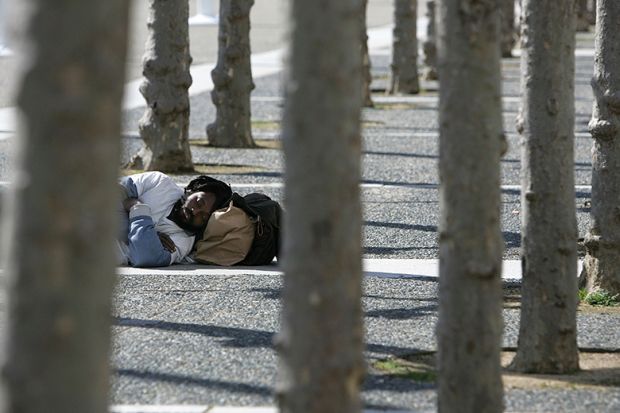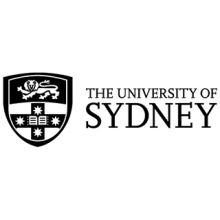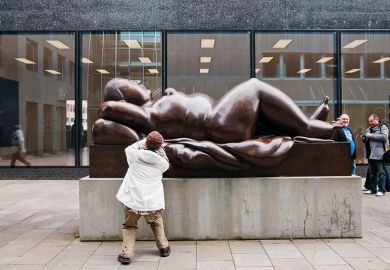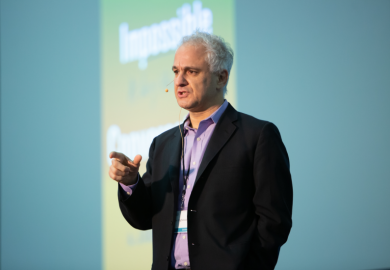Lindsey Kingston’s Fully Human is remarkable both for its breadth of content and its depth of research. She synthesises well-researched facts about the world with clearly articulated theoretical accounts of citizenship, human rights and states’ duties. In doing so, she highlights the ways in which people are categorised according to their political standing, and explains how this categorisation translates into a denial of the political agency that is, conceptually at least, fundamental to citizenship.
Kingston’s aim is to advance the idea of functioning citizenship. In theory, to be a citizen of a nation state is to be a rights-holder. Citizenship rights may differ across jurisdictions, but our formal understanding is that citizenship confers rights equally among co-citizens. In practice, however, citizenship all too often either reflects entrenched social stratification, or produces it. As much as citizenship can be a practice of political inclusion, it can also be an instrument of exclusion. Hence Kingston’s emphasis on the functional role of citizenship seeks to align citizenship practices with our best theoretical conceptions of human dignity, political inclusion and personal empowerment. In her own words, the project is “an unabashedly idealistic call to break down the hierarchies of personhood that make widespread human suffering and rights abuses possible”.
Idealistic or not, Fully Human gives us good reasons to consider the idea of functioning citizenship. Kingston begins by showing that citizenship in the modern era sits uncomfortably at the intersection of nation states as foci of national identity and universalist approaches to human rights. Nation states are generally presumed to be the political institutions of a national group. Yet empirically we know that states typically exercise jurisdiction over more than a single, unified people. The impact that this has on universalised human rights is that states do not always treat their own citizens, or those within their jurisdictions, as equals.
Perhaps nowhere is this more visible than in the plight of the stateless. Logically, the stateless must be entitled to full citizenship somewhere either through jus soli or jus sanguinis; yet they are denied even the most basic rights to citizenship. Statelessness not only represents the paradigm instance of a denial of functioning citizenship; it also highlights the most extreme example of what is lost in other instances of citizenship rights denial, such as we observe in refugees and asylum seekers: the agency to live a life of purpose with a right to a place.
Although the lack of functioning citizenship is most obvious in the forcibly displaced (including the victims of human trafficking), we can also see it play out in the politically disenfranchised migrant worker communities of liberal nation states. Lacking political standing in the communities that they inhabit, migrant workers struggle for basic rights such as education and healthcare. For so-called irregular migrant workers, these problems are exacerbated by exploitation and fear of deportation. Less obviously, but just as urgent, are the denials of purpose and place experienced by nomadic and Indigenous peoples who, in the absence of a citizenship that functions in their interests, are displaced from their traditional lands and denied equal inclusion in the political projects that alienated them.
Kingston lays out these threads and weaves them into a coherent tapestry depicting the manner in which theoretical conceptions of citizenship fail to translate into the robust agency rights that many of us take for granted. By virtue of not having functioning citizenship, a growing list of people and peoples is denied the human rights that inhere in the mere fact of being human. Rights to nationality, to exit states and to seek asylum are the most evidently missing; but Kingston’s book reminds us of the value of rights to freedom of movement, freedom from arbitrary detention or even access to an adequate standard of living.
Fully Human draws on Kingston’s extensive experience in human rights, statelessness, national identities and states’ responsibilities. Her theoretical framework merges with empirical research and accounts of lived experience to produce a grounded – and, importantly, grounding – account of the current state of play in human rights practice. Far from the ideal of a global regime of human-rights-respecting nation states, Kingston points out that states routinely violate or simply ignore the rights of those within their purview. It is tempting to think that such states are foreign, or rogue, or illiberal; but in reality the states that fail to deliver on their human rights duties are frequently our own, and too often the victims are within our own communities.
I have already mentioned Kingston’s depth and breadth of research, but it is worth leaning into this aspect a bit further because other books are also extensively researched. What stands out in Fully Human is the blending of empirical evidence and academic theory to produce a motivation for humanitarian action – without didactic moralising. The rights violations that Kingston emphasises are real humanitarian concerns, but the call for functioning citizenship is rooted in our theories of political agency and state legitimacy. For states to provide adequate human rights protections for those within their jurisdiction is not to claim that states must go above and beyond the call of duty – it is just the claim that states ought to perform their actual duties. In tracing the contours of citizenship practices against the background of citizenship theories, Kingston foregrounds the problems while gesturing towards the solutions. Perhaps the only truly idealistic element here is Kingston’s hope that states will take notice. The project itself is sound.
Although Kingston’s approach to recognising personhood and requiring that states fulfil their human rights duties is well defined and defended, I did at times wonder if she is right to diagnose all her subjects with the same condition of non-functioning citizenship. It seems to me that whereas asylum seekers (or, say, trafficked persons) are necessarily deprived of the rights of citizenship to which they are entitled, the problem for the stateless is that they do not have any citizenship at all; and, as Kingston notes, at least some Indigenous people eschew state citizenship altogether. Although it seems clear that all the groups mentioned here are denied many of the human and political rights assumed in liberal conceptions of citizenship, it is less clear to me that their lack of rights can be categorised as the same in kind.
Even so, Fully Human earns its place on an academic bookshelf by virtue of perspicuously problematising idealised conceptions of the modern nation state and then theorising about potential solutions. It is a valuable resource for any theorist working in the areas of citizenship, human rights or even the rights of states. For people just starting out on their research journey, I would particularly recommend it because Kingston’s own research is so wide-ranging. However, its value as an academic resource should not dissuade the non-academic reader with an interest in political theory. Although I doubt that the subject matter has broad audience appeal, for those who are interested in human and political rights practices, Fully Human is the right place to start.
Matthew R. Joseph is a PhD candidate at the University of Sydney working on the philosophy of immigration and states’ rights of exclusion.
Fully Human: Personhood, Citizenship, and Rights
By Lindsey N. Kingston
Oxford University Press
312pp, £41.99
ISBN 9780190918262
Published 2 May 2019
The author
Lindsey Kingston, associate professor of international human rights and director of the Institute for Human Rights and Humanitarian Studies at Webster University, in St Louis, Missouri, grew up in Michigan near the Canadian border. With strong Italian-American roots on her mother’s side of the family and a grandfather who migrated to the US as a young man, she learned about “issues related to migration and citizenship” from an early age.
She attended Boston University as an undergraduate, then American University in Washington DC and, finally, Syracuse University for her PhD. The “culture shock” of moving from “a small and relatively homogeneous rural community” to the diversity of the East Coast sparked a curiosity that “pushed me towards the social sciences” and stimulated a desire to travel the world, “which is how I started to ‘see’ inequalities in a new way – and link them to politics at home, too”.
“I was travelling in Thailand during graduate school when I first encountered the issue of stateless-ness,” she says, and “learning about the vulnerabilities that people face when they don’t have legal nationality to any country” spurred her to explore the intersection between citizenship and human rights.
Her work has led her to see that “human rights abuses aren’t accidental, and they certainly don’t just ‘happen’ all of a sudden”.
The terrible suffering caused by abuses of human rights makes both scholarly research and activism vital, because without them, in Kingston’s view, “the inter-national community tends to approach these issues in short-term, even superficial, ways. The processes that make this suffering possible are incredibly complicated, and we can’t address those problems without digging deeper to look at root causes, potential consequences and so on.”
Matthew Reisz
POSTSCRIPT:
Print headline: A place where we belong
Register to continue
Why register?
- Registration is free and only takes a moment
- Once registered, you can read 3 articles a month
- Sign up for our newsletter
Subscribe
Or subscribe for unlimited access to:
- Unlimited access to news, views, insights & reviews
- Digital editions
- Digital access to THE’s university and college rankings analysis
Already registered or a current subscriber? Login









